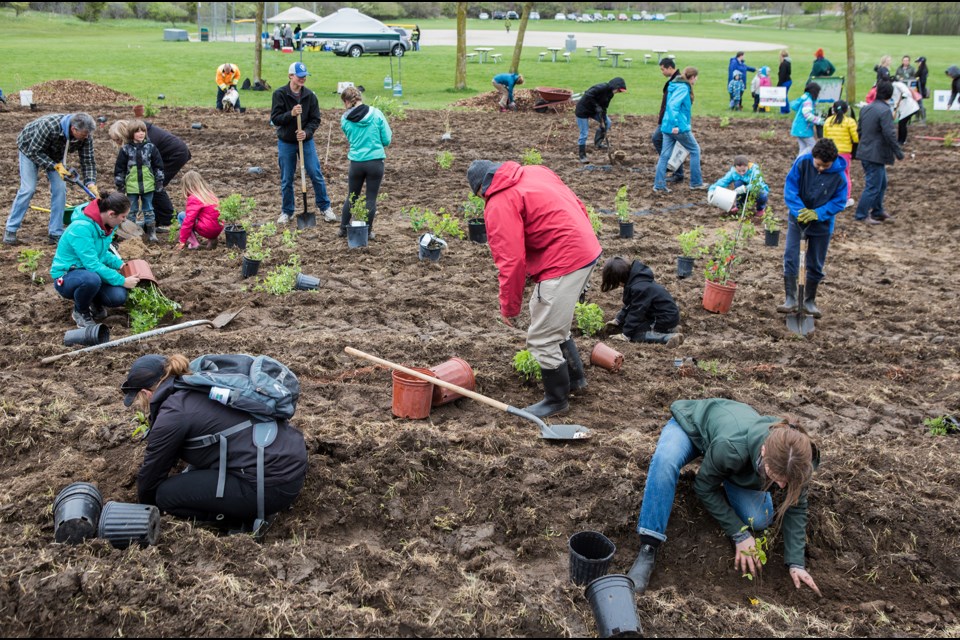An outdoor classroom is the next proposed phase of the Community Food Forest located in University Village Park.
A small group of steadfast garden enthusiasts met recently to discuss the next phase of the Guelph Community Food Forest, and its plans to incorporate an outdoor classroom into the natural woodland area inside University Village Park.
The seed to include a natural educational facility came after the organizing committee received voracious community support and feedback at an open house in August 2015 when plans for the food forest was first announced
Thanks to a recent grant from TD Friends of the Environment, the group now has funds to proceed with the facility, said Karen McKeown, a board member who spearheaded the food fest initiative. The classroom space – a circular area, five metres in diameter, and shaded by trees – was allocated for the 0.62 hectare food forest, pending on funding, in the original plans.
The food forest took root last May with the help of close to 100 volunteers who showed up eager to plant at the inaugural breaking-ground event despite the brisk, wet weather and soggy, muddy grounds.
Created to mimic a natural forest using permaculture design principles, they planted over 500 plants that should eventually become self-sustainable. It includes native fruit and nut trees, along with perennial pollinators, groundcovers and shrubs that work in symbiosis to pollinate the fruit and flowers.
The City of Guelph and various local organizations such as Pollination Guelph are important partners in the project that played a major role in bringing it into fruition, either by providing financial support or helping secure funds and donations from external sources.
The outdoor classroom initiative is the first of its kind within Guelph that is intended for public use, as far as the group is aware of.
They hope to create a public gathering spot and provide learning opportunities to the whole community, open to schools, groups and organizations, as well as members of the public.
Other new initiatives include building a bee or insect hotel, as well as an arbour – hopefully with the help of some talented community volunteers.
The group learned a lot from their first season, including challenges with weather, weed control, poor soil quality and a deer route that meant plantings needed to be protected with tube shelters.
The 2017 season will kick off with a planting day scheduled for May 13. Volunteers are needed to help with planting, clean-up and mulching. For more information, visit http://guelphcommunityfoodforest.org.
